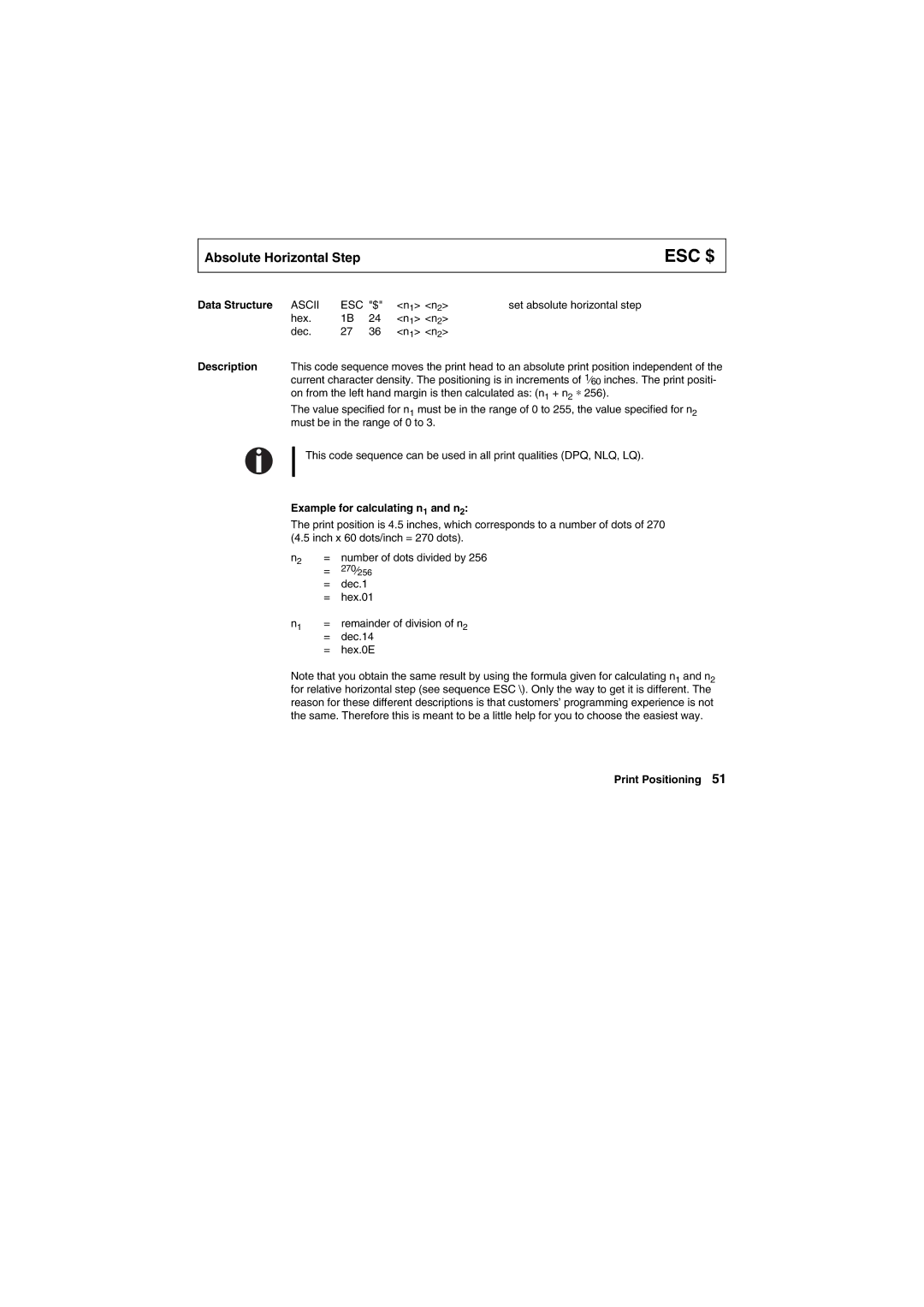Absolute Horizontal Step |
|
| ESC $ | |
|
|
|
|
|
Data Structure ASCII | ESC | "$" | <n1> <n2> | set absolute horizontal step |
hex. | 1B | 24 | <n1> <n2> |
|
dec. | 27 | 36 | <n1> <n2> |
|
Description This code sequence moves the print head to an absolute print position independent of the current character density. The positioning is in increments of 1⁄60 inches. The print positi- on from the left hand margin is then calculated as: (n1 + n2 ∗ 256).
The value specified for n1 must be in the range of 0 to 255, the value specified for n2 must be in the range of 0 to 3.
This code sequence can be used in all print qualities (DPQ, NLQ, LQ).
Example for calculating n1 and n2:
The print position is 4.5 inches, which corresponds to a number of dots of 270 (4.5 inch x 60 dots/inch = 270 dots).
n2 | = | number of dots divided by 256 |
| = | 270⁄256 |
| = | dec.1 |
| = | hex.01 |
n1 | = | remainder of division of n2 |
| = | dec.14 |
| = | hex.0E |
Note that you obtain the same result by using the formula given for calculating n1 and n2 for relative horizontal step (see sequence ESC \). Only the way to get it is different. The reason for these different descriptions is that customers’ programming experience is not the same. Therefore this is meant to be a little help for you to choose the easiest way.
